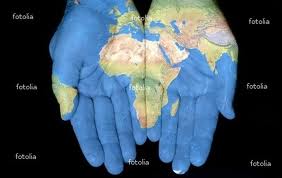Mexican climate negotiations prove a spicy mouthful
Just a few hours ago, international negotiations with huge consequences for people all over the world kicked off. The United Nations Framework Convention on Climate Change (UNFCCC) - and its cacophony of acronyms - will spend the next two weeks working towards a climate deal in the hopes of reaching a harmonious agreement that will limit humanity’s impact on our climate for the good of people all over the world.
As one of those people, one young enough to see the effects of climate change in her lifetime, and quite likely to, given my country’s vulnerability to climate change, I will be tracking South Africa’s negotiators throughout the negotiations in the hope of communicating what these discussions mean to the South African public.
And that is why I am here, at a surreal resort in Cancun, Mexico, complete with white beaches, blue water, palm trees, and the site of this year’s climate change negotiations, the sixteenth Conference of the Parties (COP) to the UNFCCC. It seems a strange sort of place to hold such a serious event. The tourist-orientated city has the kind of beauty that reminds me of a facelift – smooth, but not especially genuine. Perhaps the slightly obscene nature of the place will remind international negotiators that the negotiating process could benefit from heart and soul and not just talk. With a little bit of luck, Cancun may even witness the creation of solid building blocks for an international deal on climate change.
Environmental issues, particularly ethics, have long been a fascination of mine, but it was only recently that my growing frustration with the lack of progress on climate change guided me to become a part of the process, to try to understand it and, perhaps, even impact on it in whatever way might be possible. And that, with a little bit of luck, a lot of hard work and your input, is what I hope to do. Representing myself only, I hope to translate key climate change issues and the UNFCCC process into something more manageable than it seems. The process, which seems utterly chaotic to those outside (and sometimes, inside) the negotiations, will have very real, tangible impacts on us and those around us. Our delegates are speaking on our behalf, and we should try to ensure that our voices are truly represented.
I hope to explain the value of the COP, but also remind us that our hard-won gains to improve the lives of South Africans will be lost if we do not take responsibility for our part in this challenge and urge international leaders to create a climate deal that really means something.
Today I have more questions about the negotiations swirling around in my head than I can feasibly answer. Mostly, I want to know what the South African government is doing to move this process forwards. I want to know what actions we are taking at home to show we are serious about climate change. I want to know how our government plans to improve the living standards of our people, without compromising the natural resources on which we depend. I’m also curious as to whether my fellow South Africans are concerned enough about climate change to make the changes and to urge government to do the same. I want to know if our government supports the efforts our our delegation and supports the work they’re doing. I’m also curious about South Africa’s role in the UNFCCC process. In the negotiating process, where countries team up to push a particular position, South Africa is part of the Africa group, the BASICs group, G77+China. I intend to explain what this means and understand how these relationships affect a positive outcome in the negotiations, and particularly how these dynamics will play out at the next COP, to be held in Durban next year.
Over the course of the next two weeks I hope to answer some of these questions and inspire as much discussion around the subject as possible. This year, South Africans showed their capacity for unity in their support of the World Cup. Now, let’s show the world what we can do for climate change.




-
Joshua Wiese
-
Alex Stark
About the author
Laura Tyrer
Laura Tyrer is a climate-change activist based in Johannesburg, South Africa. She has an honours degree in philosophy, with a particular interest in environmental ethics. As a former journalist, Laura is seeking to highlight the broad spread of considerations that need to be taken into account in Africans climate change agenda.

